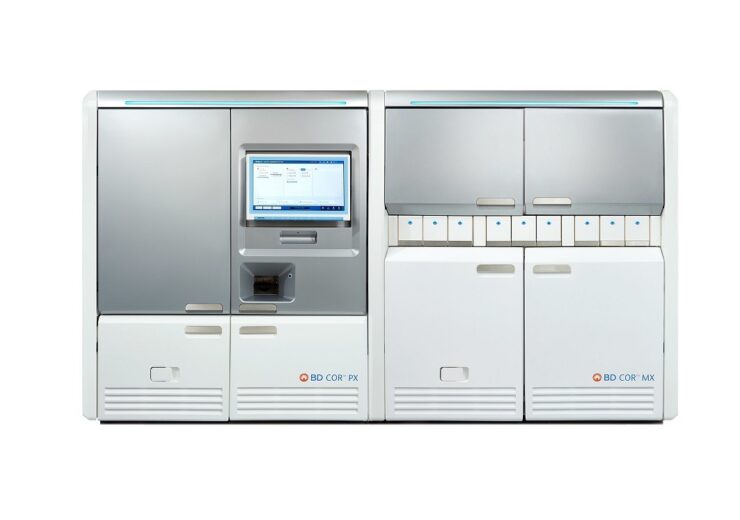BD COR MX for infectious disease testing has been granted CE mark approval and is the final instrument introduced on BD COR System

BD expands the BD COR System to include a new MX instrument. (Credit: Becton, Dickinson and Company.)
Medical technology company Becton, Dickinson and Company (BD) has expanded its BD COR System to include a new MX instrument for high-throughput infectious diseases testing.
The new MX instrument and its test for sexually transmitted infections have been granted CE mark approval, as per the IVD directive 98/79/EC.
It is the final addition to BD COR System, which also features PX instrument for sample preparation, and GX instrument to screen for HPV infections.
BD has designed the MX instrument based on the molecular PCR technology platform used in BD MAX System, a medium-throughput system used in hospital labs.
It intends to use the menu of infectious disease tests with BD MAX System to create assays that can be performed in high-throughput central reference labs on the BD COR System.
The BD COR System integrates and automates the entire molecular laboratory workflow from sample processing to diagnostic test results, said the company.
BD molecular diagnostics vice president Nikos Pavlidis said: “The BD COR PX/GX system is already used at laboratories across Europe and in Israel, helping to improve diagnostics and positively impact patient care.
“The availability of the MX instrument expands the use of the platform and automates testing for an expanding list of high-demand, essential assays for women’s health and STI testing using multiplex PCR assay design, starting with BD’s CTGCTV2 test.”
BD CTGCTV2 for BD COR System is the first test available on the MX instrument, with additional assays currently under development.
It is designed to detect the three prevalent non-viral sexually transmitted infections, including Chlamydia trachomatis (CT), Neisseria gonorrhoeae (GC) and Trichomonas vaginalis (TV).
The MX instrument will perform the analytical steps of the BD CTGCTV2 molecular assay, including extraction, amplification and detection.
In addition to the CE mark, the BD CTGCTV2 assay was also registered in Australia by the Therapeutic Goods Administration (TGA).
Earlier this month, BD acquired Tissuemed, a self-adhesive surgical sealant films provider, for an undisclosed amount.
